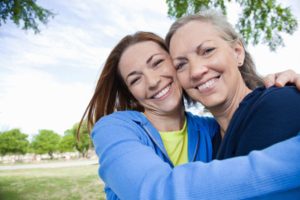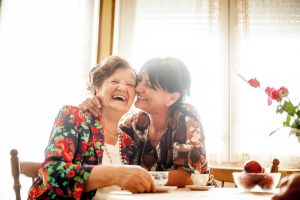Throughout the pandemic, we all experienced social isolation and loneliness, but seniors, whether they live at home or in a care community, were extra isolated due to the higher risks associated with COVID-19. Gerontologist and Caregiver Advocate Dr. Lakelyn Hogan shares ways that we can help with the impact of loneliness and isolation on older adults.
Loneliness and isolation among the older adult population existed before the pandemic and they will continue to exist as we get back to our everyday lives. Isolation is when we physically don’t have enough people to come in contact with, while loneliness is more of a subjective term and you don’t feel as if you are having quality interactions.
It is important that as we assess our loved one’s needs that we are having quality interactions and they are feeling connected. We are seeing the negative impacts of isolation and loneliness among the older population in the areas of mental, physical, and emotional health. Isolation is as detrimental to our health as smoking 16 cigarettes a day. Isolation increases the risk for things like heart disease, stroke, dementia, even increased mortality.
Signs to watch out for in your loved ones:
- Dietary issues (eating less or more)
- New aches and pains
- Anxiety
- Paranoia
- Changes in appearance
- Low energy and sleep issues
It is important for all of us to be aware of those signs so that if we see them in our loved ones we can address them promptly.
With World Mental Health Day on October 10th and Thanksgiving approaching, there are numerous ways to give back to the seniors in your life and in your community.
Ways to give back:
- Home Instead has so many programs that can help: Ready to Care is a Pen Pals program that allows you to write a letter to a senior and share your contact information to stay in touch with your pen pal.
- Hire a professional caregiver who can provide some much-needed companionship and be your eyes and ears if you live far away and aren’t able to visit with your senior loved one often.
- Schedule a time to check in regularly with your senior loved one – whether in person or on the phone/video chat.
- Help your senior loved one connect to community or hobby groups that do activities/cover topics they are interested in.






